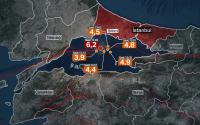1 June 2010
When a regular, well-armed, well-trained army goes to war against a "freedom flotilla" of civilian vessels laden with civilians, food and medication, the outcome is foretold - and it doesn't matter whether the confrontation achieved its goal and prevented the flotilla from reaching Gaza. The violent confrontation, whether caused by poor military planning or poor execution, resulted from flawed policy, wars of prestige, and from a profound misunderstanding of the confrontation's meanings and repercussions.
The grave political damage caused by the confrontation is all too clear. Relations with Turkey will probably deteriorate further, and there may even be serious damage on the official level. The proximity talks with the Palestinians, which started lamely and with low expectations, will have trouble proceeding, now that Israel has attacked a ship intended to aid Gazans languishing under a four-year siege. Hamas claimed an outstanding victory without firing a single rocket, Egypt is under redoubled pressure to undermine the siege by opening the Rafah crossing, and it's reasonable to assume Europe and the United States will not be able to let Israel get away with a mere reprimand.
All these developments are little surprise to anyone, and shouldn't have surprised the policy makers in Jerusalem. Nevertheless, it seemed no one could resist the temptation to show the Israel Defense Forces' strength in a place the IDF should not have been in the first place. Because the question was not who would win the confrontation, but who would win more public opinion points. In this test, Benjamin Netanyahu's government failed completely. Israel let its policy of maintaining the siege on Gaza become an existential matter. This policy boomeranged and cost Israel its international legitimacy.
The decision makers' negligence is threatening the security of Israelis, and Israel's global status. Someone must be held responsible for this disgraceful failure. There is no way to convince Israel's citizens and its friends around the world that Israel regrets the confrontation and its results, and is learning from its errors, other than setting up a state inquiry committee to investigate the decision-making process, and to decide who should pay for this dangerous policy.






